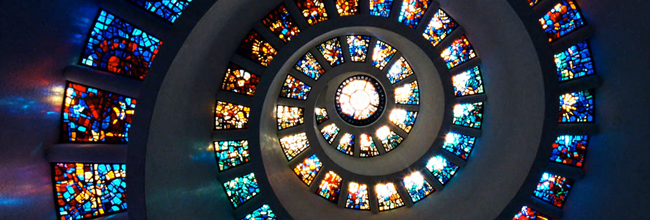By Sasha Stone
Terrence Malick’s eagerly awaited "Tree of Lif"e was held in rapt attention when it screened in Cannes this morning. But when the credits rolled it was greeted with boos and and applause, as is sometimes the case with more challenging films here.
There is little doubt that the film is a disappointment to those who were expecting something maybe a little less “thin.” You probably aren't going to hear the word "masterpiece" thrown around much. All are in agreement about how beautiful it is to look at and how well the film was made. It’s worth seeing for the cinematography alone.
Having gotten the bad news out of the way early, let me say that I am not nearly willing to dismiss Tree of Life because it was hard to digest in one go. I look forward to ruminating on it over the next ten years. It seems to me he was getting to something about his own evolution as a man, mortality, religion, the afterlife - what is it to be born? What is it to die? The film offers up no answers to these questions.
Watching the film is at times like being in a religious service, walking through an art gallery, meditating, listening to a poetry reading or dreaming. To that end, it is like a psychic caress. It’s one of the most soothing works you’ll see here. It soothes the soul, even if it doesn’t exactly engage the brain.
The reaction has so far been mixed with bloggers and critics. Some want to think about it more before coming to a conclusion - others feel it was repetitive and said everything it needed to say in its first breathtaking hour.
Meanwhile, the elusive Malick disappointed hundreds of journalists when he failed to show up to the press conference following the packed screening early morning in Cannes.
"Mr. Malick is very shy," said his producer Sarah Green at the news conference. "I believe his work speaks for him."
Henri Behar was not satisfied. "That's not good enough," he protested, and then asked the cast, including Brad Pitt: "Does he laugh, does he talk, is he stern, is he jovial? Does he like food?"
Pitt responded, "Yes, he even goes to the bathroom." But that's all the group learned about the director's personal habits.
Amid scenes of breathtaking natural beauty, moments of exquisite tenderness and a structure which is gloriously freewheeling, Terence Malick’s The Tree Of Life is ultimately a fairly simple tale of childhood memories, loss and acceptance of the slings and arrows of fate. Malick is a devout Christian and this is his big “God” film, a dialogue between the characters - and the film-maker - with the big man in the sky over why he treats us so badly.
There were some loud and angry boos when the press screening finished this morning but there was equally loud applause and anger at the boos. This is how the film will be accepted worldwide. It is a wildly ambitious opus that requires audience engagement with the pace and mood that Malick sets. The story as much as there is one revolves around a suburban family in 1950s Texas - Brad Pitt is the big bully father of three kids, and Jessica Chastain the loving mother. Sean Penn plays one of the children when he is an adult.
As Chastain tells us in voiceover (since The Thin Red Line, Malick has embraced voiceover of characters’ thoughts rather than straightforward dialogue) you can choose to live your life by nature or by grace. The latter of course is preferable and is embodied here by the radiant Chastain as opposed to the conflicted Pitt whose nature gets in his way of happiness. Pitt is all clenched jaw and grimace as the father and it’s one of his best performances to date.
After resisting Malick’s guileless and unabashed faith-probing, I found myself moved by the big themes of life, death, belief and trust in a higher power. The film requires that level of surrender and, once given, it provides rich rewards. The more cynical among us will struggle to accept it.
Bertrand Bonello’s The House Of Tolerance is one of the least memorable films in competition so far, a turgid portrait of a madam and her whores in a Paris brothel at the turn of the 20th century. It reminds me that Cannes often treats its French films to different standards. An American or Asian film this dreary would never even be considered for competition, but Cannes selectors often have a blind spot when it comes to their homegrown product.
The scene where disfigured prostitute Noemie Lvovsky cries tears of sperm, having explained earlier that she had a dream where she cries tears of sperm, is one of many heavy-handed moments in a film where purpose and momentum are low on the priority list.










